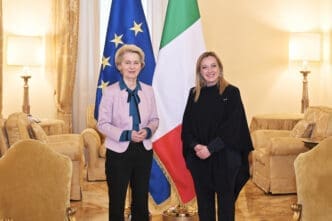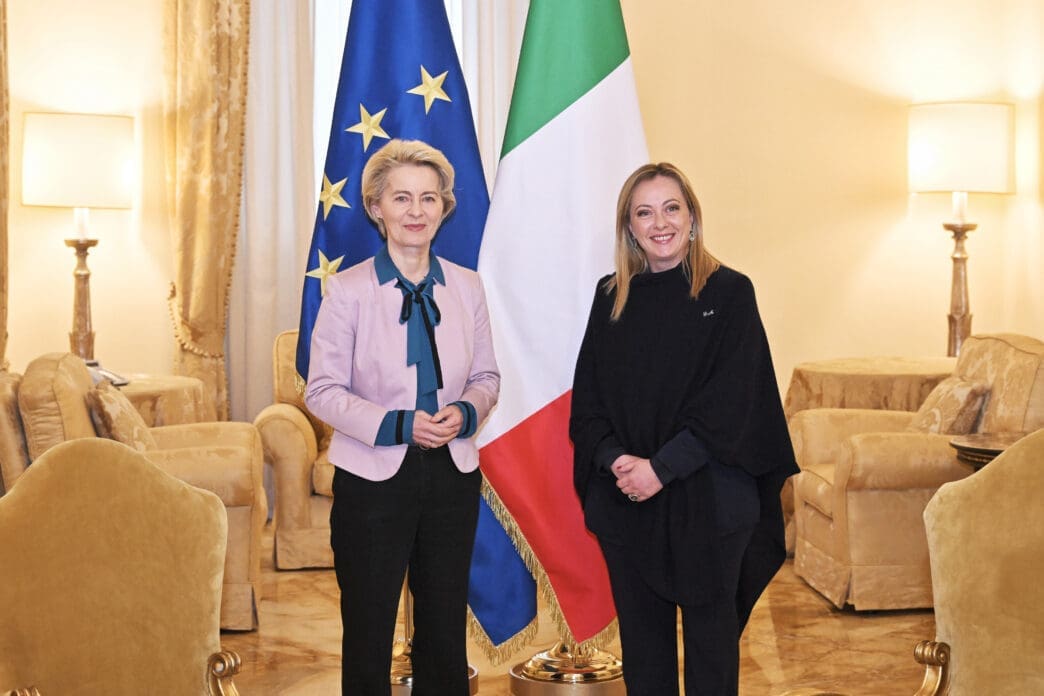The upcoming meeting between Giorgia Meloni, Italy’s Prime Minister, and US President Donald Trump holds significant importance amid ongoing trade tensions. As Trump has hinted at initiating a trade war with the European Union, Meloni’s visit may play a pivotal role in averting further escalation. Although Trump has temporarily halted some proposed measures, the question remains whether Meloni can secure tangible outcomes from this diplomatic engagement.
Expert analysis suggests that the potential for Meloni to achieve concessions is limited, raising concerns about the European response to her visit. The discussions are expected to cover key areas such as the economy, industrial sector, and defense. Meloni’s proposal to increase defense spending could benefit American manufacturers but might conflict with EU defense strategies aimed at bolstering Europe’s own defense industry.
Meloni is anticipated to advocate for the EU’s ‘zero-for-zero’ tariff agreement on industrial goods with the US, underscoring the robust bilateral relations between Italy and the United States. The US stands as Italy’s largest trading partner outside the EU, highlighting the economic interdependence of the two nations. However, Meloni’s approach also reflects the internal dynamics of Italy’s coalition government. She seeks to navigate between the differing priorities of Deputy Prime Ministers Matteo Salvini, who emphasizes protecting Italian interests, and Antonio Tajani, who favors a pro-European outlook.
In the broader context, Meloni aims to demonstrate her leadership by balancing these internal and external pressures. Her strategy involves listening to coalition partners and leveraging diverse perspectives to foster productive exchanges and capitalize on shared benefits. While Italian and European interests often align, the complexity of European politics demands a nuanced approach, with Meloni positioned as a trusted figure in this intricate landscape.
Your World Now
This high-level meeting between Giorgia Meloni and Donald Trump could have far-reaching implications for both Italy and the broader European Union. For Italy, successful negotiations might bolster economic opportunities and strengthen ties with a key trading partner. The potential increase in defense spending could also impact local industries and job markets, particularly if American factories benefit from these agreements.
For the EU, Meloni’s ability to navigate the delicate balance between national and European interests could influence broader trade and defense policies. Her stance may set a precedent for how other EU countries engage with the US, potentially affecting future negotiations and collaborations. The outcome of this meeting could also shape public opinion within Italy, affecting the political landscape and Meloni’s standing as a leader capable of managing complex international relations.














